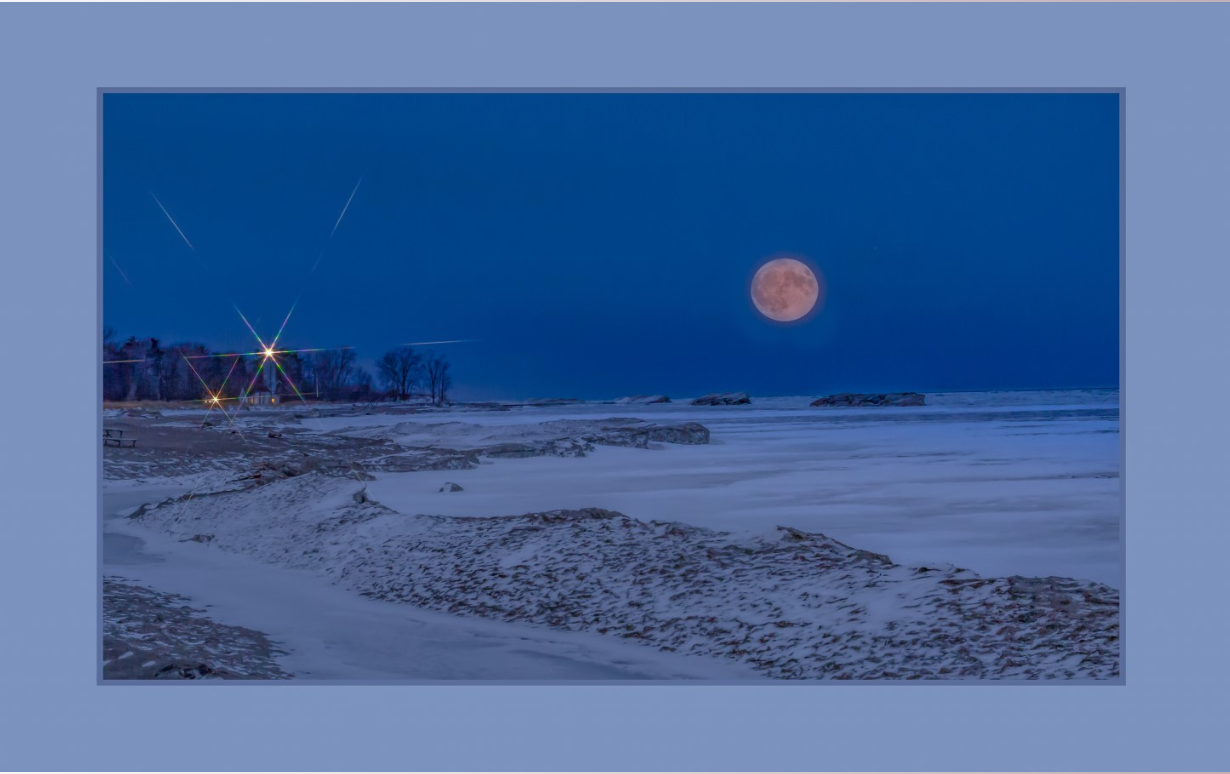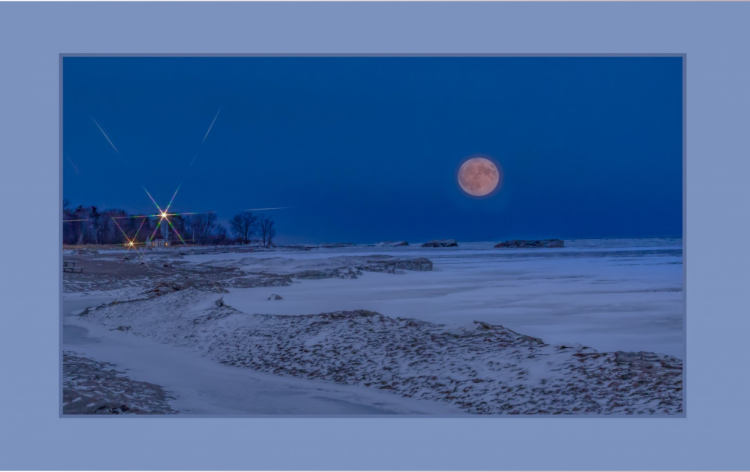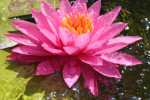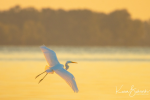The problem in this culture may well be that we have destroyed night. Even night is all light and noise and activities now. Where I go to write in a remote village in Ireland for three months of the year, night remains night. There is no light anywhere outside the house, only a few small lights flicker from within the small houses. Inside the house when the turf fire goes out, it is too cold to stay up.
So the dark and the cold set in early and with them an inner life that nothing else nurtures in quite the same way. The loss of night is a loss of human soul, I think, which means that if we do not have it naturally, we need to create it for ourselves: television and computers off, lights out, extra hours of quiet. Then maybe we can find the inside of ourselves again and the voice of God that echoes there so much more clearly than anywhere else.
Silences, solitude, and the contemplation of what it means to be a human being in a world of machines may be long overdue in this society. We take war for granted, crime for granted, cacophony for granted, everything for granted except the need to be alone, to think a bit about something besides the externals of life, to think about not wanting to think about anything at all.
Silence and solitude are the Sabbaths of the heart. A world in tumult, down whose streets millions crowd every day, could, perhaps, do well to find ways to get lost inside themselves often. Then maybe we wouldn’t feel so strung out, so tired, so exhausted at the thought to simply living.
Silence, solitude, and contemplation have gifts to give to all of us that no amount of frenetic activity can possibly provide. Rest, peace, insight, calm, concentration, serenity, energy, and transcendence are no small bounty to garner in the midst of a world in perpetual motion.
Wednesday, February 1: Life without the solitude that comes with night and the silence that unleashes the self within is a life without serious reflection. It is a life without a soul.
Thursday, February 2: The light bulb gave the world the 24-hour day. Whether or not the world is better off for it is still uncertain. Nothing ever stops anymore. Nighttime has no meaning now. The noise goes on around the clock. So when do we ever really rest? And does that matter?
Friday, February 3: Having the opportunity to be alone is an important dimension of learning to function alone. Having had the time to define our own personal positions in life we can then go on with the confidence and certainty it takes to know what we think—and then claim it.
Saturday, February 4: “I can’t hear myself think,” my mother used to say when there was more noise than she could abide. I know now what she meant. The question is, Can anyone hear themselves think in a world steeped in 24 hours of noise? Most of all, what is the effect of that on the level of thinking in this society?
Sunday, February 5: When night blocks out the noise and the lights, the mind and the soul come out of hiding and real thinking begins. As the painter Vincent van Gogh said, “I often think that the night is more alive and more richly colored than the day.”
Monday, February 6: Nighttime turns the light on the self. Now there is nothing between me and truth. “There are days,” Colette says, “when solitude...is a heady wine that intoxicates you with freedom....” Then the challenge lies in learning what to do with the freedom.
Tuesday, February 7: The solitude of night brings all our fears into focus. It also gives us the opportunity to trust again in the coming light of day and the basic awareness that the universe is friendly and creation is good.
Wednesday, February 8: It is solitude that gives us the opportunity to recover a sense of internal order, to develop new self-confidence for the day to come, and to experience the spiritual strength it takes for a person, if necessary, to face tomorrow alone. “I would rather sit on a pumpkin and have it all to myself,” Henry David Thoreau writes, “than be crowded on a velvet cushion.”
Thursday, February 9: For those for whom one day blurs into another with dizzying speed, night brings with it a renewed sense of self and the courage it takes to go on dealing with the clamor that comes with any highly-active life.
Friday, February 10: The modern world seems to assume that anyone who prefers quiet to noise is antisocial—or worse. The real truth may simply be that the person who can be alone is healthy enough, self-assured enough to like their own company. “What a commentary on our civilization,” Anne Morrow Lindbergh wrote, “when being alone is considered suspect, when one has to apologize for it, make excuses, hide the fact that one practices it—like a secret vice.” Commentary: What “civilization”?
Saturday, February 11: There are two distinctly different spiritual parts of the day—night and day. Each of them shows us a different face of God and a different image of the self. Coming to understand one is key to understanding the other.
Sunday, February 12: Solitude gives us the self-knowledge it takes to trust ourselves, even in a crowd that would like it better if we were like them rather than uniquely us. “In solitude,” Laurence Sterne says, “the mind gains strength and learns to lean upon itself.”
Monday, February 13: When we cultivate silence, we are really cultivating communication. Silence teaches us to listen—to ourselves and even to others.
Tuesday, February 14: Night is one way to learn solitude; being surrounded by strangers is another. Busses, metros, airplanes, waiting rooms plunge us into the very center of ourselves. They are a gift to the soul in the middle of a hectic day. Edith Wharton writes of it, “She was not accustomed to taste the joys of solitude except in company.”
Wednesday, February 15: Solitude is not a deprivation; it soothes the nerves and quiets the mind and gives us respite from the unending jabber of useless conversations.
Thursday, February 16: Night itself does not release a string of prayers. Night is a prayer. It is the beginning of the communion that comes with a sense of the uninterrupted presence of God in life.
Friday, February 17: It is in the stillness of night that we really open ourselves to the world, to our inner selves and to the relationship between them. “The dead of moonlight,” Anna Letitia Barbauld writes, “is the noon of thought.”
Saturday, February 18: Without solitude we run the risk of losing touch with ourselves and what we really think, what is really important to us, who we really are under all the guises of the day. Night is meant to be where we can most be ourselves, where we can come to know and heal ourselves from the strain of trying to be what others want us to be.
Sunday, February 19: In large groups, we lose a part of ourselves to the will of the crowd. But when we are alone, we become who we really are.
Monday, February 20: We spend far too much time thinking about who we will be in the group and far too little time thinking about who we really are when we are alone. It is the relationship between the two that is the measure of the human being’s integrity.
Tuesday, February 21: The African Proverb says, “The earth is a beehive; we all enter by the same door but live in different cells.” To lose touch with the separated self is to become a figment of the group mind. But bifurcated, divided in two, is not who we were born to be.
Wednesday, February 22: The language has a new phrase for this inner/outer struggle of the self for wholeness: “Get it together.” When what we really mean is bring your outer self, your presentation of self to the group, in line with your awareness of who you really are inside.
Thursday, February 23: “We enter this life naked and alone,” Thomas De Quincey wrote, “and we leave it the same way.” The only question then is, What kind of person are we in between those times—independent and strong of mind or dependent on others and unsure of ourselves? It takes silence and solitude to really know the answer to that question.
Friday, February 24: The great by-product of solitude is self-containment, the secret power of an inner strength honed from self-knowledge and self-esteem.
Saturday, February 25: When solitude teaches us who we are, we no longer need the affirmation of others. We are no longer beholden to public approval because we have developed a firm foundation for our own.
Sunday, February 26: Humility grows in the dark of night out of the insight that comes with solitude. “We are rarely proud,” Voltaire writes, “when we are alone.”
Monday, February 27: When we know who we are, when we have confronted the spirits within ourselves against which we vie for dominance, we find ourselves more inclined to be so much kinder to everyone else.
Tuesday, February 28: Learning silence and solitude, learning to love solitude and rest in silence is the beginning of freedom and independence. “When you close your doors and make darkness within,” Epictetus wrote, “remember never to say that you are alone, for you are not alone; nay, God is within and your genius is within.”
Let's Share Our Thoughts
The following discussion questions, Scripture echoes, Journal prompts, and prayer are meant to help you reflect more deeply on The Monastic Way. Choose at least two suggestions and respond to them. You may do it as a personal practice or gather a group interested in sharing the spiritual journey. Once a month The Monastic Way staff will convene a Zoom conference where you can share your insights. Three times a year Sister Joan Chittister will join that Zoom conference to give more input and respond to your questions and ideas regarding one issue of The Monastic Way.
Discussion Questions
1. In his recent book, Together, Vivek H Murthy, the 19th Surgeon General of the U.S., suggests four strategies for human connection in our pandemic times:
•Spend time each day with those you love.
•Focus on each other.
•Embrace solitude
•Help and be helped.
He says of solitude: “The first step towards building stronger connections with others, is to build a stronger connection with oneself. Solitude helps us do that by allowing us to check in with our own feelings and thoughts, to explore our creativity, to connect with nature. Meditation, prayer, art, music, and time spent outdoors can all be sources of solitary comfort and joy.”
What place does solitude play in your life? How do you spend your “solitude” time? Have you found that solitude builds a stronger connection to yourself? Has it enabled you to connect better with others? Explain.
2. Which daily quote in The Monastic Way is most meaningful to you? Why? Do you agree with it? Disagree? Did it inspire you? Challenge you? Raise questions for you?
3. After reading The Monastic Way write one question that you would like to ask the author about this month’s topic.
4. Joan Chittister uses other literature to reinforce and expand her writing. Find another quote, poem, story, song, art piece, novel that echoes the theme of this month’s Monastic Way.
5. Someday try doing nothing but sitting in an empty room and listening to what is playing on the tapes inside your head. Take a few notes. Now answer the question: What is really going on inside yourself?
Scripture Echo
“Because so many people were coming and going, Jesus said to the apostles, ‘Come away with me by yourselves to a quiet place and get some rest.” Mark 6:31
 Journal Prompts
Journal Prompts
Prompt 1.
Here are a few statements from this month’s Monastic Way. Choose one that is most helpful to you and journal with it
•Nighttime turns the light on the self.
•…when we are alone, we become who we really are.
•Life without solitude and silence is a life without soul.
Prompt 2. Spend a few minutes with this photograph and journal about its relationship to this month’s Monastic Way. You can do that with prose or a poem or a song or….
Prayer
When I am liberated by silence,
when I am no longer involved in the measurement of life,
but in the living of it,
I can discover a form of prayer in which
there is effectively, no distraction.
My whole life becomes a prayer.
My whole silence is full of prayer.
The world of silence in which I am immersed contributes to my prayer.
Let me seek, then, the gift of silence…and solitude
where everything I touch is turned into prayer:
where the sky is my prayer,
the birds are my prayer,
the wind in the trees is my prayer,
for God is all in all.
–Thomas Merton

 Artwork: by Karen Bukowski
Artwork: by Karen Bukowski




